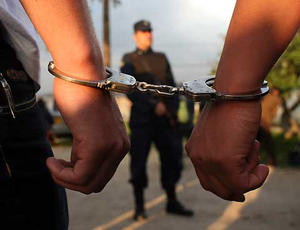During the 1980s Colombian narcotraffickers fought ferociously against being extradited to the United States. Pablo Escobar, the chief of the notorious Medellin Cartel, launched a campaign of terror in order to avoid extradition, resulting in the deaths of hundreds. “Better a grave in Colombia than a prison in the United States,” Escobar was known to say. The Orejuela brothers of the other major criminal organization, the Cali Cartel, were slightly more tactful than Escobar, but nevertheless as keen as he was to keep out of the U.S. judicial system.
 But lately in an unprecedented shift, narcotraffickers are changing their attitudes, and becoming eager to be extradited—the sooner the better. Before answering why, here’s a little background.
But lately in an unprecedented shift, narcotraffickers are changing their attitudes, and becoming eager to be extradited—the sooner the better. Before answering why, here’s a little background.
On June 24, the Citizen Security Law was introduced. In part, the new law simplified and expedited the extradition process. Prior to the law, extraditions could take up to two years. Now it can take as little as twenty days. Here’s how it works: If someone is wanted by the U.S. government on charges of narcotrafficking, and he is captured by Colombian authorities, he has the right to waive his appeal for extradition and the Colombian courts must decide within twenty days whether or not he will be extradited.
Since the introduction of the Citizen Security Law, less than a month ago, four narcotraffickers have waived their appeals, opening the door for their quick extradition. Meanwhile, eight others are already awaiting their indictments in the United States and are expected to waive their right to appeal in order to be quickly extradited. This begs the question—why?
Between 2000 and 2010, 1,121 narcotraffickers were extradited to the United States. I suspect that through their negotiations with the U.S. judicial system, these narcotraffickers have found that they can obtain benefits outweighing the costs. Some of the perks include prison terms reductions, protections for themselves and their families, and securing part of their wealth. The new Citizen Security Law offers the added bonuses of an expedited extradition and possibly even better benefits.
Before, the two years narcotraffickers spent in prison in Colombia while the courts reviewed the U.S. extradition request were not discounted in the U.S. penal system. Obviously they would be better off if these two years counted toward their sentencing in the United States. Also, the information that narcotraffickers have to offer is time-sensitive. Consequently, its value depends on how fast they can trade it in. The greater the value, the greater the benefits they can extract from U.S. authorities.
Finally, some of the 1,221 extradited narcotraffickers completed their sentences in the United States and then rejoined criminal organizations including paramilitary groups. Case in point: Victor Patino Fomenque, a former leader in the Cali Cartel, was extradited in 2002 and is now back leading a paramilitary group in the north of Valle.
With all of the above we have to ask if extradition is truly an effective tool to fight crime. More and more evidence says it is not. Especially for those that have committed war crimes, extradition has become a safe haven since they will only be tried for “narcotrafficking” while their “crimes against humanity” are largely forgotten. This is the case of most paramilitary leaders such as Salvatore Mancuso, Diego Fernando Murillo (alias “Don Berna”), Miguel Angel Mejia Munera (alias “El Mellizo”), Guillermo Perez Alzate (alias “Pablo Sevillano”), Ramiro Vanoy (alias “Cuco Vanoy), and others.
The United States may tout extradition as fighting crime, but when narcotraffickers begin to court the system, it's a sign that things are not always as they seem.

